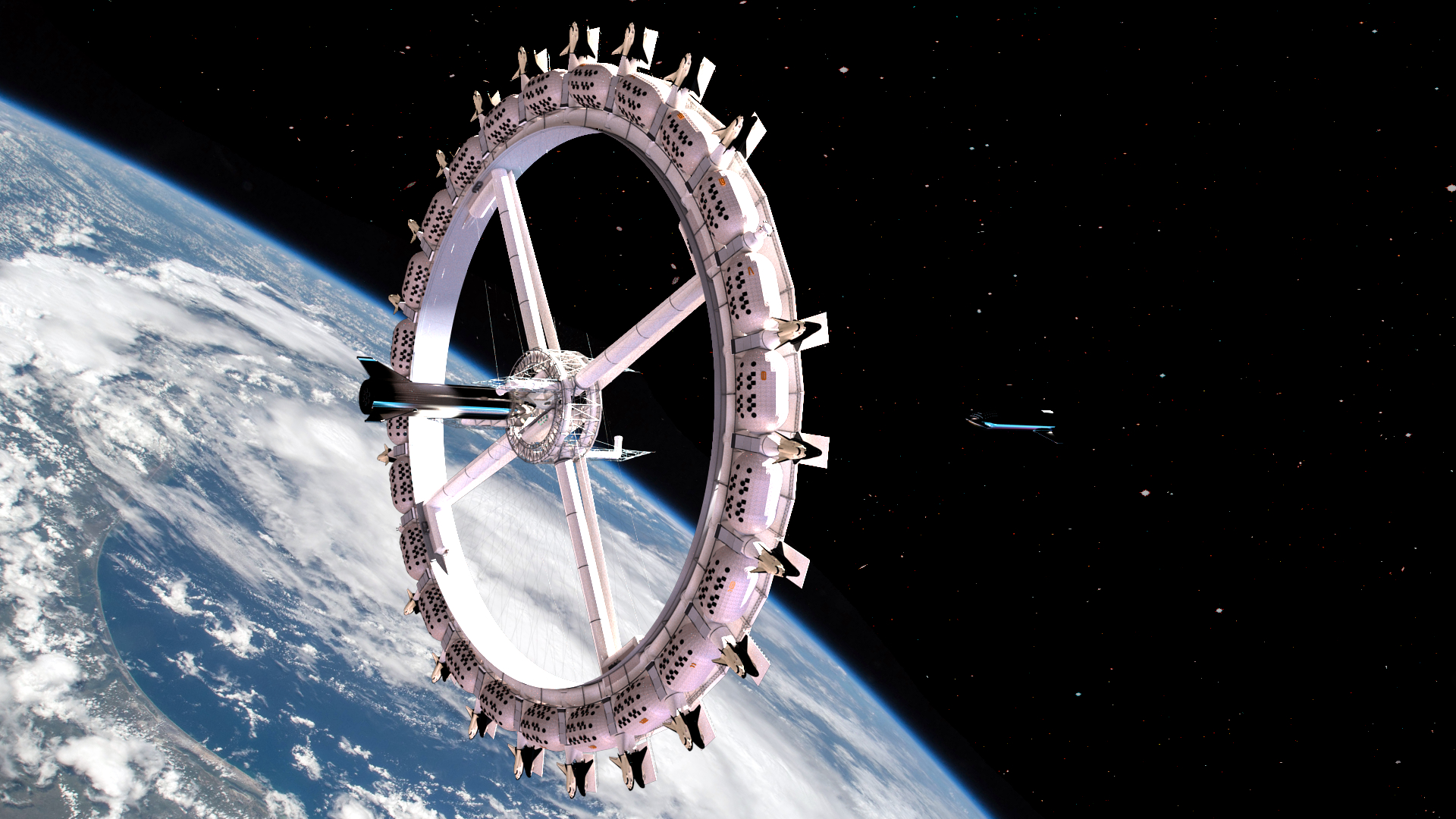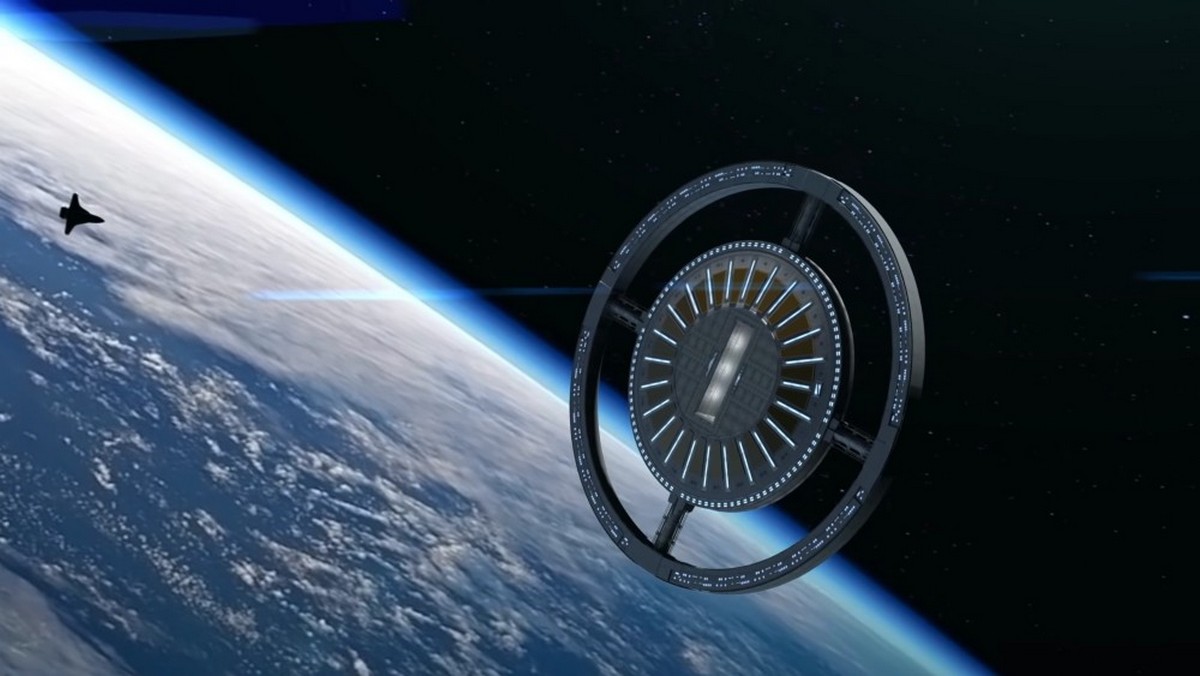Orbital Assembly Corporation has revealed its plans to make a space business park, complete with artificial gravity. It will have 28 guests in five modules built around a rotating gravity ring.
Their first Pioneer-class space station will be functional by 2025.
In an emailed statement, Rhonda Stevenson, chief executive officer of Orbital Assembly, said the Pioneer design is “a safe, secure, and reliable modular station that will generate revenue and profitability from both the tourist and commercial sectors sooner than our competitors who are adhering to NASA timetables.”

In December 2021, NASA gave three contracts to privately owned U.S. companies Blue Origin, Nanoracks, and Northrop Grumman to develop low Earth orbit space stations for both public and commercial use. NASA is aiming to have these space stations in orbit and operational by 2030.
These space stations will replace the International Space Station (ISS).
Private space company Axiom Space is also planning to build its own commercial space station. it aims to launch the first section of the station to low Earth orbit in 2024.

Despite the pending competition, Orbital Assembly is hoping to become the dark horse of commercial space tourism. “Multiple revenue streams from commercial, research, and tourism markets will enable us to subsidize the travel market for a one to two-week stay,” Stevenson said. “While launch costs continue to be a barrier, we expect tourists will be motivated to plan shorter, or more frequent, stays as space travel becomes less expensive.”
In early February, the company, which runs on private investment, announced $1 million in newly raised funding, which allowed for a slew of new hires. It will need more money if it hopes to build an orbiting space station; for reference, NASA allocated a total of $415.6 million for the three contracts awarded to Blue Origin, Nanoracks, and Northrop Grumman.


